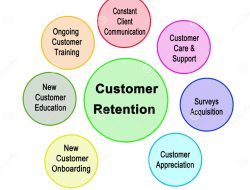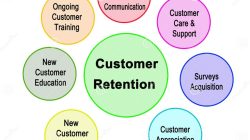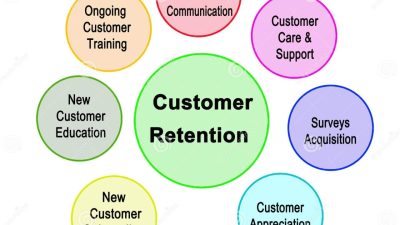Marketing Advisory Services That Guide Businesses in Choosing the Right Accounting Method is your gateway to understanding the pivotal decisions that shape financial success. In today’s complex business landscape, selecting the appropriate accounting method is not merely a technical choice but a strategic maneuver that can significantly influence operations and reporting. Whether you’re a startup or an established enterprise, recognizing the strengths and implications of different accounting methods is crucial for long-term sustainability.
This insightful resource dives deep into the nuances of cash basis and accrual basis accounting, elucidating their impact on financial reporting and operational efficiency. With expert guidance on evaluating methods and avoiding common pitfalls, businesses can make informed choices that align with their unique objectives.
Understanding Accounting Methods
Accounting methods are essential for businesses as they determine how financial transactions are recorded, impacting the accuracy of financial reporting and decision-making. Selecting the appropriate accounting method can influence tax obligations, cash flow management, and overall business strategy. Businesses need to grasp the various accounting methods available to choose the one that best aligns with their operational needs and financial goals.The two primary accounting methods available are cash basis accounting and accrual basis accounting.
Each method has distinct characteristics and implications for financial reporting, affecting how income and expenses are recognized within financial statements.
Cash Basis Accounting
Cash basis accounting records revenues and expenses only when cash changes hands. This method is straightforward and commonly used by small businesses or those with simpler financial transactions. Cash basis accounting offers a clear view of cash flow but may not provide an accurate reflection of profitability since it does not account for receivables or payables.
- Real-time Cash Flow Management: Businesses can monitor cash flow closely as transactions are recorded when cash is received or paid. This helps in maintaining liquidity.
- Simplicity: The cash basis method is easier to understand and implement compared to accrual accounting, making it ideal for smaller enterprises.
- Tax Timing Flexibility: Income is only taxed when received, which can provide beneficial cash flow timing for businesses.
Accrual Basis Accounting, Marketing Advisory Services That Guide Businesses in Choosing the Right Accounting Method
Accrual basis accounting recognizes revenues and expenses when they are earned or incurred, regardless of when cash is exchanged. This method provides a more accurate representation of a company’s financial position and performance over time. It is particularly useful for businesses that sell on credit or have significant receivables.
- Comprehensive Financial Reporting: Accrual accounting provides a clearer picture of a business’s financial performance and obligations, allowing for better long-term planning.
- Matching Principle: This method adheres to the matching principle, ensuring that revenues are matched with the expenses incurred to generate them within the same period.
- Improved Financial Analysis: Investors and stakeholders often prefer accrual accounting for its ability to provide insights into future cash flows and operational performance.
“The choice between cash basis and accrual basis accounting can significantly affect a business’s financial reporting and tax obligations.”
In summary, understanding these accounting methods allows businesses to make informed decisions that can enhance financial management, compliance, and overall strategic planning. Each method carries its own set of advantages and implications, making it crucial for businesses to assess their specific needs before selecting the right approach.
Importance of Choosing the Right Accounting Method
Selecting an appropriate accounting method is critical for the smooth operation and long-term success of a business. The accounting method impacts not only financial reporting but also tax obligations, cash flow management, and overall operational efficiency. Consequently, businesses must recognize the significance of making informed decisions when it comes to their accounting practices.An unsuitable accounting method can lead to misrepresentation of the company’s financial health, resulting in poor decision-making and potentially detrimental outcomes.
Over time, the repercussions of this misalignment become substantial, affecting both compliance with regulatory standards and the company’s reputation among stakeholders.
Impact on Business Operations
The choice of accounting method directly influences various aspects of business operations. The two primary accounting methods—cash basis and accrual basis—serve different operational needs:
- Cash Basis Accounting: This method records revenues and expenses when cash changes hands. It is straightforward and provides a clear picture of cash flow. For small businesses with minimal inventory, this method can simplify financial management.
- Accrual Basis Accounting: In contrast, this method records revenues and expenses when they are incurred, regardless of when cash is exchanged. This approach is beneficial for businesses that carry inventory or extend credit, as it offers a more accurate representation of financial performance over time.
Selecting the right accounting method can therefore streamline processes, enhance financial visibility, and support strategic planning.
Long-Term Consequences of an Incorrect Choice
Opting for the wrong accounting method can lead to numerous long-term consequences that may compromise a business’s viability.
- Financial Misstatements: Incorrect reporting can mislead stakeholders, resulting in lost trust and damages to the business’s reputation.
- Tax Penalties: Misalignment with IRS requirements can lead to audits and penalties, which can be financially crippling.
- Cash Flow Issues: An unsuitable method can obscure cash flow realities, making it difficult to manage daily operations effectively.
- Informed Decision-Making: Inaccurate financial data hampers the ability to make informed strategic decisions, affecting growth and sustainability.
These factors highlight the importance of thorough consideration before settling on an accounting method.
Key Considerations for Selecting an Accounting Method
When choosing an accounting method, businesses should evaluate several key factors to ensure alignment with their operational needs:
- Business Size and Complexity: Larger businesses or those with complex transactions may benefit from the accrual method due to its comprehensive nature.
- Industry Standards: Certain industries have established practices that may influence the choice of accounting method, impacting comparability with competitors.
- Cash Flow Management: Understanding cash flow needs is crucial; businesses may prefer cash accounting for its simplicity and immediacy of cash reporting.
- Long-Term Goals: The chosen method should support the business’s growth objectives and overall financial strategy.
By carefully evaluating these factors, a business can select an accounting method that not only reflects its current needs but also supports its future aspirations.
Role of Marketing Advisory Services in Accounting Choices: Marketing Advisory Services That Guide Businesses In Choosing The Right Accounting Method
Marketing advisory services play a crucial role in guiding businesses through the complex landscape of accounting decisions. These services not only provide insights into the various accounting methods available but also align these choices with the overall strategic objectives of the business. By leveraging industry expertise and data-driven analysis, marketing advisors help businesses navigate the often-overlooked implications of their accounting strategies, ensuring that financial reporting aligns with business goals.Effective marketing advisory services assist businesses in making informed accounting decisions through a variety of methods, including tailored consultations, strategic planning sessions, and thorough market analyses.
By evaluating the specific needs of a business and understanding its long-term objectives, these services help in determining which accounting method—be it cash basis, accrual basis, or others—best fits the operational model and growth aspirations of the organization.
Successful Business Examples Benefiting from Advisory Services
Numerous businesses have thrived by utilizing marketing advisory services to refine their accounting choices. For instance, a mid-sized tech firm facing fluctuating revenues opted for a hybrid accounting method after consulting with marketing advisors. This approach allowed them to better manage cash flow while accurately reflecting income, ultimately leading to improved investment opportunities.Another example is a retail company that engaged marketing advisors to integrate their accounting methods with promotional strategies.
By adopting a more transparent accrual accounting method, they improved inventory management and realized significant cost savings, enhancing both profitability and customer satisfaction.The strategic alignment of accounting methods with business objectives is vital for sustained success. Marketing advisory services help businesses ensure that their accounting practices are not only compliant with regulations but also conducive to achieving their broader goals.
This alignment can manifest in several ways:
- Customized Strategy Development: Marketing advisors tailor strategies that integrate accounting practices with market dynamics, ensuring businesses remain agile and responsive.
- Enhanced Financial Reporting: By selecting the appropriate accounting method, companies can present a clearer financial picture, aiding decision-making for stakeholders.
- Risk Management: The right accounting methods help identify and mitigate financial risks, aligning risk tolerance with business goals.
“Choosing the correct accounting method is not just about compliance; it’s about aligning financial practices with the vision of your business.”
In conclusion, the role of marketing advisory services in accounting choices is pivotal. By providing expert guidance and strategic insights, these services empower businesses to choose accounting methods that support their growth, enhance operational efficiency, and ultimately lead to greater success.
Steps to Evaluate Accounting Methods
In the world of business, selecting the appropriate accounting method can significantly impact financial reporting and tax obligations. This evaluation process is vital for ensuring compliance, optimizing financial performance, and supporting strategic goals. Here, we Artikel a comprehensive step-by-step guide to assist businesses in evaluating different accounting methods effectively.Assessing the right accounting method involves a systematic approach. By understanding the key factors and evaluating them against specific business needs, organizations can make informed decisions.
The following steps serve as a framework to facilitate this evaluation process.
Step-by-Step Guide for Evaluating Accounting Methods
When evaluating various accounting methods, it’s crucial to follow a structured approach. The following steps will help guide your assessment:
- Identify Business Objectives: Determine the primary financial goals of your business, such as cash flow management, tax minimization, or financial reporting accuracy.
- Understand Available Accounting Methods: Familiarize yourself with the primary accounting methods: cash basis, accrual basis, and hybrid methods, along with their unique features and implications.
- Analyze Regulatory Requirements: Assess any legal or regulatory requirements specific to your industry that may dictate the choice of accounting method.
- Evaluate Financial Impact: Analyze how each method affects financial statements, tax obligations, and cash flow. Consider using financial modeling to project the long-term effects.
- Consult with Stakeholders: Engage with key stakeholders, including accountants, financial advisors, and business partners, to gather insights and perspectives on potential accounting methods.
- Perform a Risk Assessment: Identify risks associated with each accounting method, such as compliance risks or impacts on financial integrity.
- Create a Comparison Table: Summarize and compare the findings from the previous steps in a table format to visualize differences and benefits.
Criteria to Assess Suitability of Accounting Methods
Establishing criteria for evaluating the suitability of accounting methods is fundamental to ensuring alignment with business operations. Consider the following factors:
“The right accounting method enhances decision-making and strengthens business strategy.”
- Business Size and Structure: Different methods cater to varying sizes and structures, influencing complexity and reporting requirements.
- Revenue Recognition: Assess how each method recognizes revenue, which can significantly affect earnings reporting.
- Cash Flow Considerations: Analyze the impact on cash flow timing and management, particularly for businesses with seasonal or fluctuating revenues.
- Tax Implications: Evaluate potential tax liabilities and benefits associated with each method, as they can differ considerably.
- Industry Standards: Consider industry norms or recommendations that may influence the choice of accounting method.
Creating a Comparison Table for Different Accounting Methods
A comparison table is an effective tool for evaluating and contrasting different accounting methods. It enables businesses to visualize differences and make informed decisions. Here’s how to structure your comparison table:
| Criteria | Cash Basis | Accrual Basis |
|---|---|---|
| Revenue Recognition | Recorded when cash is received. | Recorded when earned, regardless of cash flow. |
| Expense Recognition | Recorded when paid. | Recorded when incurred. |
| Complexity | Simple and easy to maintain. | More complex; requires more resources. |
| Tax Implications | Potentially lower tax in short-term. | More accurate picture of long-term profitability. |
| Best Suited For | Small businesses with straightforward transactions. | Businesses with inventory or complex transactions. |
Utilizing these steps and criteria will empower businesses to make informed decisions about their accounting methods, ensuring they align with overall objectives and support sustainable growth.
Case Studies of Business Transitions

Businesses often face the necessity of transitioning from one accounting method to another to better align with their operational strategies and financial reporting needs. This case study section showcases real-life examples of companies that successfully navigated their accounting method transitions, highlighting the challenges they encountered and the strategic role of marketing advisory services in facilitating these changes.
Successful Transition Examples
Examining specific cases provides insight into the practical aspects of transitioning accounting methods. Below are notable examples of businesses that have made effective shifts:
- ABC Manufacturing Inc.: Transitioned from cash basis to accrual basis accounting. The company faced challenges such as managing accounts receivable and inventory adjustments. With the guidance of marketing advisory services, they developed a communication strategy to educate stakeholders about the benefits of improved financial visibility and reporting accuracy, which ultimately supported their transition.
- XYZ Retail Group: Shifted from a hybrid method to full accrual accounting to meet regulatory requirements. The primary challenge was ensuring compliance with new taxation laws. Marketing advisors assisted in outlining the transition steps, developing a timeline, and communicating the changes to the team, enhancing overall readiness and minimizing resistance to change.
- Tech Innovations Ltd.: Moved from the completed contract method to percentage-of-completion accounting for better revenue recognition on long-term projects. The main hurdle encountered was aligning project management and financial reporting systems. Through tailored workshops and training sessions facilitated by marketing advisory services, employees gained the knowledge to adapt to new practices seamlessly.
Challenges Overcome During Transitions
Transitioning accounting methods can present various challenges that require strategic planning and execution. Some common obstacles include:
- Training and Education: Employees often need training to understand new accounting practices. Marketing advisory services developed comprehensive training materials and sessions to facilitate this transition.
- System Compatibility: Existing accounting systems may not support new methods. Businesses were guided to evaluate their software options and make necessary upgrades, ensuring a smooth transition to new processes.
- Stakeholder Engagement: Gaining buy-in from stakeholders can be a challenge. Marketing advisors helped craft clear messaging to articulate the benefits of the transition, fostering support and understanding among employees and investors.
Role of Marketing Advisory Services in Facilitating Transitions
Marketing advisory services play a pivotal role in the transition process by providing strategic guidance and support. Their contributions can be summarized as follows:
- Change Management: Developing strategies to manage and communicate changes effectively minimizes disruptions and resistance.
- Stakeholder Communication: Crafting targeted communication plans ensures that all stakeholders are informed and aligned with the transition goals, helping to maintain morale and cooperation.
- Training Programs: Designing training sessions tailored to specific accounting methods equips employees with the necessary skills and knowledge to transition smoothly, enhancing overall productivity.
“Successful accounting method transitions are not just about numbers; they require strategic communication and stakeholder engagement to ensure that everyone is on board and prepared for the change.”
Through these case studies, it becomes evident that while the transition between accounting methods can be fraught with challenges, the right guidance from marketing advisory services can make a significant difference in achieving a successful outcome.
Common Mistakes in Accounting Method Selection
Choosing the right accounting method is crucial for any business, yet many companies fall victim to common pitfalls during this selection process. These mistakes can lead to dire financial repercussions, impacting overall business performance and strategy. Understanding these errors and their implications is essential for informed decision-making in the financial landscape.The repercussions of selecting an inappropriate accounting method can be significant.
Businesses may experience cash flow issues, inaccurate financial reporting, or even legal complications if they fail to comply with accounting standards. These mistakes can hinder growth, distort financial health, and lead to misinformed strategic decisions. It is critical for businesses to recognize these common pitfalls to mitigate risks effectively.
Identifying Common Pitfalls
Several common mistakes can derail the accounting method selection process. Awareness of these errors is key to making a wise choice. The following points Artikel these pitfalls:
- Neglecting Regulatory Compliance: Failing to understand the regulatory requirements related to different accounting methods can result in non-compliance penalties.
- Overlooking Business Size and Complexity: Choosing an accounting method that doesn’t align with the scale and complexity of the business can lead to inefficient financial management.
- Ignoring Future Growth: Selecting a method that may not accommodate future business growth can lead to costly transitions later.
- Inadequate Consultation with Professionals: Failing to seek advice from experienced financial advisors can leave businesses ill-informed about the best practices in accounting methods.
- Relying Solely on Short-term Gains: Focusing only on immediate financial benefits might compromise the long-term viability of the accounting method.
Repercussions of Mistakes
The consequences of selecting the wrong accounting method can affect a business’s financial health significantly. Below are some critical repercussions that businesses may encounter:
- Financial Misstatements: Inaccurate accounting can lead to flawed financial statements, affecting decision-making and investor confidence.
- Cash Flow Problems: An unsuitable method can create discrepancies in cash flow management, complicating operational functions.
- Taxation Issues: Incorrect accounting practices may lead to overpayment or underpayment of taxes, resulting in legal complications.
- Damage to Credibility: Persistent financial inaccuracies can damage a company’s reputation and trustworthiness with stakeholders.
Strategies to Avoid Common Mistakes
Implementing specific strategies can help businesses avoid pitfalls in accounting method selection. Here are some effective approaches:
- Conduct Thorough Research: Investigating various accounting methods and their implications will empower businesses to make informed choices.
- Consult Financial Experts: Engaging with accounting and financial professionals can provide insights tailored to the company’s unique situation.
- Regularly Review Accounting Methods: Businesses should periodically assess their chosen accounting method to ensure it remains aligned with their financial strategies and goals.
- Consider Technology Solutions: Utilizing accounting software can streamline financial processes and provide data-driven insights for better decision-making.
- Focus on Long-term Objectives: Aligning accounting choices with long-term business goals can facilitate sustainable growth and stability.
“Choosing the right accounting method is not just about compliance; it’s about building a foundation for your business’s financial future.”
Future Trends in Accounting Methods
The accounting landscape is undergoing a revolutionary transformation driven by technological advancements. As businesses strive for efficiency and accuracy, fresh accounting practices are emerging, allowing for more streamlined operations and enhanced decision-making capabilities. Understanding these trends is crucial for businesses aiming to stay competitive in a rapidly evolving market.The integration of technology in accounting practices is reshaping how financial data is recorded, analyzed, and reported.
Automation, artificial intelligence, and cloud computing are at the forefront of these changes, enabling firms to process vast amounts of data with unprecedented speed and accuracy. This transformation not only enhances operational efficiency but also impacts how businesses choose their accounting methods, paving the way for innovative solutions that cater to modern needs.
Emerging Technologies in Accounting
Several cutting-edge technologies are currently influencing accounting practices, each offering unique advantages that businesses can leverage. Below are key technologies and their implications on accounting methods:
- Cloud-based Accounting Software: This technology allows businesses to access their financial data anytime and anywhere, improving collaboration and real-time decision-making. Popular platforms like QuickBooks Online and Xero illustrate the shift towards cloud solutions.
- Artificial Intelligence (AI) and Machine Learning: AI tools streamline data entry and analysis, reducing human error and freeing up time for strategic tasks. For example, tools like Kabbage and Botkeeper utilize AI to manage bookkeeping tasks efficiently.
- Blockchain Technology: This decentralized ledger technology enhances transparency and security in transactions. Companies like Ripple are already leveraging blockchain for real-time payment processing, which can influence how businesses approach their accounting records.
- Robotic Process Automation (RPA): RPA tools automate repetitive processes, such as invoice processing and reconciliation. Organizations like UiPath are leading the charge in implementing RPA to enhance accuracy and reduce operational costs.
These technologies not only facilitate faster processing of accounting data but also provide businesses with the analytical tools needed to make informed decisions based on real-time financial insights.
Innovative Accounting Methods in Practice
As technology continues to advance, several innovative accounting methods are gaining traction in the market, allowing organizations to redefine their financial practices.
- Agile Accounting: This method emphasizes flexibility and adaptability in accounting processes. It enables businesses to pivot quickly in response to market changes, ensuring that financial practices remain aligned with business goals.
- Predictive Analytics in Financial Reporting: Utilizing data analytics to forecast future financial trends is becoming increasingly popular. Companies like Tableau provide tools that help businesses anticipate market shifts and prepare accordingly.
- Real-time Financial Monitoring: This approach enables businesses to track their financial performance continuously. With tools like FreshBooks, companies can access immediate insights into their financial health, fostering proactive decision-making.
These innovative methods are not just trends; they represent a fundamental shift towards more responsive, data-driven accounting practices that can significantly enhance a business’s strategic planning and operational efficiency.
“The future of accounting lies in its ability to adapt to technological advancements, fundamentally changing the way businesses interact with their financial data.”















